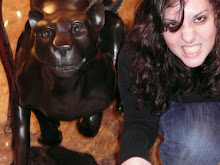It took me a few reads of the first part of this to really understand how I felt about this piece. Somewhere in the middle is a transition that occurs that makes Eurydice a much more interesting and compelling character. I did not enjoy the first part of this at all. The second, however, I was very drawn to.
At first, Orpheus and Eurydice seem scattered, uninteresting characters with no depth. Then, as they begin interacting with the underworld, the transition happens. It is as though relearning all the information about her life has made it more important to her. However, at the end, she abandons both her father and her husband. The ideas and morals in this story are very compelling, but I found Eurydice to not be worthy of such a profound story as a character.
However, the Greek Chorus is a really interesting thing to interact with, especially as a playwrite. They are characters that are both narrators (and thus outside the story and omniscient), yet they interact with the characters and help guide them. It is only in Greek theatre that this kind of overlap is possible, and it allows for the characters to directly interact with the story itself, because they seem to break the rules of the story that the Stones dictate. I wonder how we could adapt this into different types of narrators for types of theatre other than this.
As much as I disliked the character of Eurydice, I think she grows the most in the play. This is very much a coming of age story for her, and the progression she goes through of relearning everything from the ground up is a very nice build to climax. I also liked how the climax of the piece was not when she is sent back to her second death, but rather, when she gets there, and she goes through her second mourning of her father. This is a very philosophical and gripping idea, and that was really the aspect of the story that struck me most.
